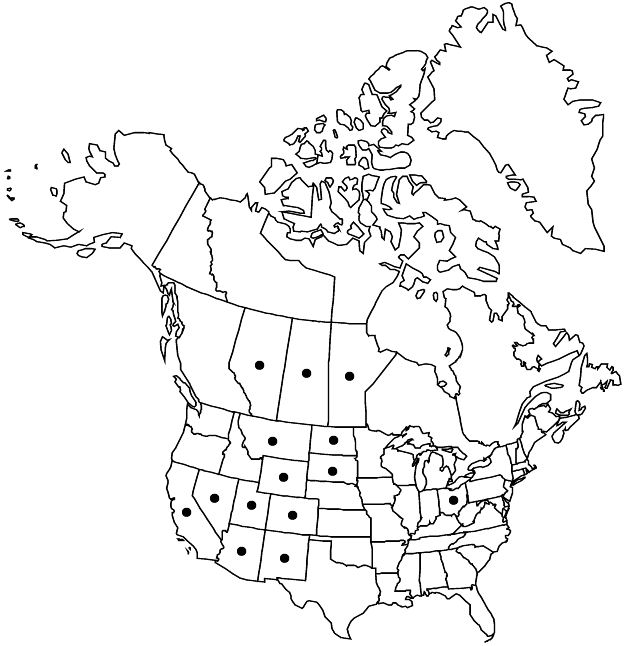Difference between revisions of "Potentilla concinna"
in J. Franklin, Narr. Journey Polar Sea, 739. 1823.
imported>Volume Importer |
RevisionBot (talk | contribs) m (Bot: Adding category Revised Since Print) |
||
| (2 intermediate revisions by 2 users not shown) | |||
| Line 1: | Line 1: | ||
{{Treatment/ID | {{Treatment/ID | ||
|accepted_name=Potentilla concinna | |accepted_name=Potentilla concinna | ||
| − | |accepted_authority=Richardson | + | |accepted_authority=Richardson |
|publications={{Treatment/Publication | |publications={{Treatment/Publication | ||
|title=in J. Franklin, Narr. Journey Polar Sea, | |title=in J. Franklin, Narr. Journey Polar Sea, | ||
| Line 61: | Line 61: | ||
-->{{#Taxon: | -->{{#Taxon: | ||
name=Potentilla concinna | name=Potentilla concinna | ||
| − | |authority=Richardson | + | |authority=Richardson |
|rank=species | |rank=species | ||
|parent rank=section | |parent rank=section | ||
| Line 72: | Line 72: | ||
|publication year=1823 | |publication year=1823 | ||
|special status=Endemic;Illustrated | |special status=Endemic;Illustrated | ||
| − | |source xml=https:// | + | |source xml=https://bitbucket.org/aafc-mbb/fna-data-curation/src/2e0870ddd59836b60bcf96646a41e87ea5a5943a/coarse_grained_fna_xml/V9/V9_258.xml |
|subfamily=Rosaceae subfam. Rosoideae | |subfamily=Rosaceae subfam. Rosoideae | ||
|tribe=Rosaceae tribe Potentilleae | |tribe=Rosaceae tribe Potentilleae | ||
| Line 80: | Line 80: | ||
}}<!-- | }}<!-- | ||
| − | -->[[Category:Treatment]][[Category:Potentilla sect. Concinnae]] | + | --> |
| + | |||
| + | [[Category:Treatment]] | ||
| + | [[Category:Potentilla sect. Concinnae]] | ||
| + | [[Category:Revised Since Print]] | ||
Latest revision as of 18:07, 6 November 2020
Stems 0.2–1.6 dm, lengths 1/2–3(–4) times basal leaves. Basal leaves usually palmate to subpalmate, sometimes subpinnate, 1(–2) pair of leaflets separate from terminal leaflets, distal leaflets distinct, 2–10(–15) cm; petiole 1–7(–10) cm, straight hairs ± abundant, ± appressed, 1–3 mm, stiff to weak, cottony hairs present, sometimes absent; leaflets 5(–7), on tip or to distal 1/4 of leaf axis, separate to ± overlapping, proximal pair separated from others by 0–5(–10) mm of leaf axis, central leaflets narrowly oblanceolate to obovate, 1–3(–7) × 0.4–1.2 cm, petiolules 0–2(–4) mm, distal 1/4 to whole margin incised 1/4–3/4+ to midvein, teeth (1–)2–5(–10) per side, separate, 1–6 mm, surfaces strongly to ± dissimilar, abaxial grayish to white, straight hairs ± abundant, ± appressed, 0.5–2 mm, weak to stiff (especially on veins), cottony hairs ± dense, rarely sparse, glands sparse or obscured, adaxial green to grayish, straight hairs common to abundant, appressed, 0.5–2 mm, mostly stiff, sometimes weak or mixed, cottony hairs absent or sparse, rarely common, glands ± sparse. Inflorescences (1–)2–12-flowered. Pedicels 1–2(–3) cm. Flowers: epicalyx bractlets lanceolate to narrowly ovate to linear-elliptic, sometimes doubled, (2–)2.5–5 × 1–1.5 mm; hypanthium 3–6 mm diam.; sepals 3.5–6 mm, apex acute; petals (2.5–)4–9 × (2–)3–7 mm; filaments 1–3 mm, anthers 0.5–1 mm; carpels (7–)10–30, styles (1–)1.5–2 mm. Achenes 1.5–2.5 mm, smooth to lightly rugose. 2n = 70.
Distribution

Alta., Man., Sask., Ariz., Calif., Colo., Mont., N.Dak., N.Mex., Nev., Ohio, S.Dak., Utah, Wyo.
Discussion
Varieties 3 (3 in the flora).
Potentilla concinna is a relatively widespread, low-growing, early-blooming species with palmate to subpalmate, abaxially cottony leaves. Flowers often appear before leaves are fully expanded. The three varieties treated here have some level of biogeographic identity and are, therefore, given provisional taxonomic recognition. Some treatments have also included P. bicrenata, P. johnstonii, and P. macounii as varieties of P. concinna. Two Mexican species, P. leonina Standley and P. oblanceolata Rydberg, have also been treated as varieties of P. concinna by J. Soják (2006); they are retained as distinct species here, pending further research on Mexican Potentilla. Two other erstwhile varieties of P. concinna are now placed in separate sections: var. modesta (Rydberg) S. L. Welsh & B. C. Johnston (misapplied) in sect. Rubricaules as P. modesta, and var. rubripes (Rydberg) C. L. Hitchcock in sect. Subjugae, intermediate between P. saximontana and P. subjuga. Potentilla concinnaeformis Rydberg, considered to be a close relative of P. concinna by I. W. Clokey (1939), is more likely a hybrid between P. glaucophylla (sect. Graciles) and P. hippiana (sect. Leucophyllae). Hybrids also occur with P. multisecta, and probably other species as well.
Potentilla concinna was first described in 1818 as P. humifusa Nuttall, a later homonym for P. humifusa Willdenow.
Selected References
None.
Lower Taxa
Key
| 1 | Distal (1/2–)3/4 to full length of central leaflets incised 1/2–3/4+ to midvein, teeth 2–6 mm; n Great Plains to c Utah. | Potentilla concinna var. divisa |
| 1 | Distal 1/4–3/4 of central leaflets incised 1/4–1/2 to midvein, teeth 1–3(–5) mm; mostly Rocky Mountains and west | > 2 |
| 2 | Stem lengths 1/2–1.5(–2) times basal leaves; leaves palmate, proximal leaflet pair not separated from others. | Potentilla concinna var. concinna |
| 2 | Stem lengths 2–3(–4) times basal leaves; leaves usually palmate to subpalmate, sometimes subpinnate, proximal leaflet pair often separated from others by 1–5(–10) mm of leaf axis. | Potentilla concinna var. proxima |